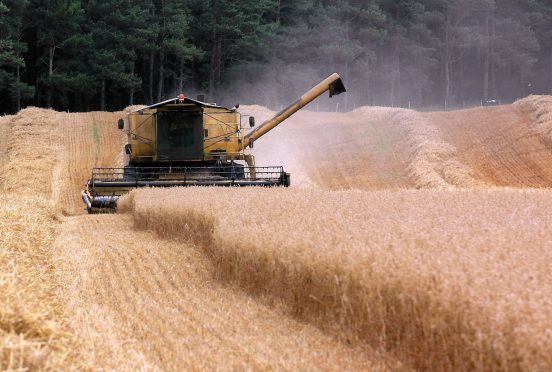The UK cereals industry will today be warned not to sleepwalk into Brexit.
Farmer levy body AHDB will make the plea while publishing a report into the post-Brexit prospects for UK grains at the Cereals event in Lincolnshire.
The organisation’s chief strategy officer, Tom Hind, will tell farmers that the scale of the potential challenge posed by Brexit must not be underestimated by anyone in the supply chain, and steps must be taken to improve competitiveness.
The AHDB report into post-Brexit prospects for grains explores in details the UK’s position in the global marketplace for wheat and barley, while profiling the competitors the UK grain industry would face when seeking to access new markets.
It concludes that as a small-scale exporter and relatively high-cost producer, the UK grain industry’s opportunities to compete in global feed grain markets will be limited and highly dependent on market conditions.
The report concludes with five key recommendations for industry to prepare for and drive change.
These are: improve competitiveness; drive productivity; ensuring businesses in the supply chain don’t exist in isolation; improve consistency of UK grain quality; and get to grips with potential grain and product niches at home and abroad.
“We started this piece of work with the intention of identifying where new market opportunities may lie but as we delved deeper, it became more and more apparent that while the demand is there, generally we are not in a situation to compete in global commodity grain markets. There are niches to exploit, but getting fit to compete in our own market has to be the priority,” said Mr Hind.
“Uncertainty around the detail of Brexit is no excuse for inertia, we need to start discussing what the cereals supply chain will look like in the longer term, from what we put in the ground to what leaves the port and what people want on their plates.
“Ultimately, every individual business needs to ask these questions and adapt their business and investment strategies to the coming change.”
HSBC’s head of agri-foods, Allan Wilkinson, welcomed the report’s recommendation for businesses to work more collaboratively.
He said: “Businesses can’t operate in isolation, especially now. Security of demand, supply, price and cost should be driving a collaborative approach. It is whole supply chains that compete for ultimate consumer demand rather than individuals looking to make a fast buck out of their customers or suppliers.
“Total chain competiveness, to provide the right product to the ultimate consumer at the right price, will involve building trust, sharing information, innovative pricing mechanisms and continuous improvement.”
